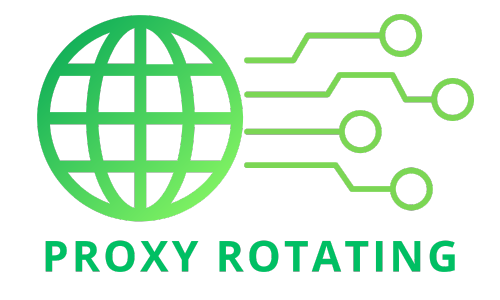The Data Privacy Degree program equips students with the necessary knowledge and skills to protect personal data in today’s digital world. Covering legal frameworks, technological solutions, and ethical considerations, graduates are prepared for careers in cybersecurity, compliance, and legal Counsel, helping organizations navigate data protection laws and earn customer trust. Let’s explore the details through the following article by Proxy Rotating.
What is Data privacy?
Data privacy, also called information privacy, involves handling, processing, storing, and using personal information that respects individual privacy rights and complies with applicable laws and regulations. The primary aim of data privacy is to protect individuals’ data from unauthorized access, misuse, or disclosure while ensuring that the data is used ethically and lawfully.

What is data privacy degree?
The Data Privacy Degree is an academic program designed to provide students with comprehensive knowledge and practical skills in protecting personal data in the digital realm. This degree focuses on understanding data privacy’s legal, technical, and ethical aspects to effectively navigate the complex landscape of data protection laws and practices.
Students enrolled in a Data Privacy Degree program learn about various topics, including:
Legal Frameworks: Understanding international and domestic data protection regulations, such as the GDPR, CCPA, and other relevant laws.
Technological Solutions: We are exploring encryption techniques, data anonymization methods, access controls, and other security measures used to safeguard personal data.
Ethical Considerations: Examining the moral implications of data collection, storage, and usage and promoting responsible data handling practices.
Risk Management Strategies: Developing skills in identifying and mitigating risks associated with data breaches, privacy violations, and non-compliance with data protection regulations.
The benefits of studying Data Privacy Degree
Studying for a Data Privacy Degree offers numerous benefits that can significantly impact both personal and professional development:
Expertise in a growing field: With the increasing importance of data protection and privacy in the digital age, individuals with specialized knowledge in this area are in high demand. A Data Privacy Degree equips students with the expertise to address complex privacy challenges, making them valuable assets to employers across various industries.
Career opportunities: Graduates of Data Privacy Degree programs have access to diverse career opportunities. They can pursue roles such as data protection officers, compliance specialists, cybersecurity analysts, legal consultants, or privacy advocates in various organizations, including multinational corporations, government agencies, non-profit organizations, and consulting firms.
Competitive advantage: In a competitive job market, having a specialized degree sets individuals apart from other candidates. Employers increasingly prioritize candidates with data privacy and compliance expertise, making Data Privacy Degree holders highly sought after.
Contribution to society: By studying data privacy, students contribute to protecting individuals’ fundamental rights in the digital age. They play a vital role in safeguarding personal data from unauthorized access, misuse, and exploitation, promoting trust and transparency in the digital ecosystem.
Global relevance: Data privacy issues transcend geographical boundaries, with regulations like GDPR and CCPA impacting organizations worldwide. A Data Privacy Degree gives students a global perspective on privacy laws, enabling them to navigate international compliance requirements and work in diverse settings.
Positive impact on organizations: Organizations benefit from hiring professionals with expertise in data privacy. Data breaches and privacy violations can lead to significant financial losses and damage to reputation. Organizations can mitigate risks by employing individuals with a Data Privacy Degree, ensuring compliance with regulations, and enhancing their overall data governance practices.
Data privacy degree training programs
Various training programs are available for individuals pursuing a Data Privacy Degree. These programs may vary in duration, format, and focus, catering to different educational backgrounds and career goals. Here are some common types of Data Privacy Degree training programs:
Bachelor’s Degree Programs: Many universities offer undergraduate programs focused on data privacy, often within computer science, information technology, or Law. These programs typically cover foundational topics in data protection, privacy laws, cybersecurity, and ethics.
Master’s Degree Programs: Graduate-level programs offer advanced training in data privacy, providing students with in-depth knowledge and specialized skills. Master’s programs may include privacy engineering, risk management, regulatory compliance, and incident response coursework.
Certificate Programs: Certificate programs provide focused training on specific aspects of data privacy, offering shorter-term options for individuals seeking to enhance their skills or pursue career advancement. These programs may cover GDPR compliance, privacy impact assessments, or data breach management.
Online Courses and Workshops: Online platforms offer a wide range of courses and workshops on data privacy, accessible to individuals from diverse backgrounds and locations. These courses may be self-paced or instructor-led and cover introductory concepts to advanced data protection and privacy management topics.
Internship and Practical Training Programs: Many organizations offer internship or practical training opportunities for students interested in gaining hands-on experience in data privacy. These programs provide valuable real-world experience and may lead to employment opportunities upon completion.
When selecting a Data Privacy Degree training program, individuals should consider program accreditation, faculty expertise, curriculum relevance, industry partnerships, and career support services. Additionally, staying informed about emerging trends and regulatory developments in data privacy is essential for continuous learning and professional growth.

Skills required for data privacy degree
Pursuing a degree in data privacy requires a combination of technical, legal, and soft skills to understand and navigate the complex data protection landscape effectively. Here’s a breakdown of the essential skills needed for a successful career in this field:
Legal knowledge
- Privacy Laws and Regulations: It is crucial to understand various data protection laws, such as GDPR, CCPA, HIPAA, and others.
- Compliance: Ability to interpret and apply these laws to different scenarios to ensure organizational compliance.
Technical skills
- Data Management: Knowledge of how data is collected, stored, and processed.
- Security Measures: Understanding of security protocols, encryption, and other methods to protect data integrity and confidentiality.
- IT Proficiency: Familiarity with the technological aspects of data privacy, including using privacy-enhancing technologies (PETs) and secure software development practices.
Analytical skills
- Risk Assessment: Ability to identify, analyze, and mitigate risks associated with data privacy.
- Problem-Solving: Skills in developing solutions to privacy issues that comply with legal standards and protect user privacy.
Communication skills
- Written and Verbal Communication: Proficiency in drafting clear privacy policies and compliance documents and clearly communicating complex legal and technical issues to non-specialists.
- Negotiation and Advocacy: Skills in negotiating with stakeholders and advocating for privacy protections within organizations.
Ethical judgment
- Ethical Decision-Making: Understanding the moral implications of data privacy decisions and maintaining high ethical standards in handling sensitive information.
Project management
- Organizational skills: Ability to manage privacy projects, including implementing privacy frameworks and conducting audits.
- Attention to detail: Precision is critical when dealing with legal compliance and data protection measures.
Continuous learning
- Adaptability: Data privacy is a rapidly evolving field, and it is essential to stay informed about new laws, technologies, and best practices.
- Certification: Additional certifications like Certified Information Privacy Professional (CIPP) can enhance knowledge and credibility.
These skills help professionals effectively manage privacy programs and navigate the complex interplay between technology and law.

Career opportunities after studying for a Data privacy degree
A Data Privacy Degree opens up many career opportunities in various industries where data protection and privacy are paramount. Below are several possible career trajectories:
Data Protection Officer (DPO): DPOs oversee an organization’s data protection strategy, ensure compliance with relevant regulations, and implement measures to safeguard personal data.
Privacy consultant: Privacy consultants provide advisory services to organizations seeking to enhance their data privacy practices. They may conduct privacy assessments, develop compliance strategies, and provide training on data protection regulations.
Cybersecurity analyst: Cybersecurity analysts focus on protecting an organization’s information systems from security threats, including data breaches and cyberattacks. Knowledge of data privacy principles is essential for ensuring the confidentiality and integrity of sensitive data.
Compliance officer: These professionals ensure organizations comply with data protection laws and regulations. They monitor internal policies and procedures, conduct audits, and implement controls to mitigate compliance risks.
Legal counsel specializing in Data privacy: Lawyers specializing in data privacy provide legal advice and representation to organizations on data protection laws, compliance requirements, and privacy disputes.
Privacy engineer: Privacy engineers design and implement technical solutions to protect personal data, such as encryption algorithms, access controls, and data anonymization techniques.
Policy analyst: Policy analysts work for government agencies, non-profit organizations, or advocacy groups to analyze and develop policies related to data protection, privacy rights, and regulatory compliance.
Data privacy advocate/activist: Data privacy advocates work to raise awareness about privacy rights, advocate for more robust data protection laws, and hold organizations accountable for their data handling practices.
These are just a few examples of the diverse career opportunities available to individuals with a Data Privacy Degree. With the increasing importance of data protection and privacy in today’s digital world, the demand for professionals in this field is expected to grow across industries.

Top Universities Offering Data Privacy Degrees
Several top universities worldwide offer programs focused on Data Privacy or related fields. Here are some renowned institutions known for their Data Privacy Degree programs:
- Stanford University – Located in California, Stanford offers a Master of Science in Cybersecurity degree program specializing in Privacy and Security.
- Harvard University—Harvard Law School offers a Master of Laws (LL.M.) program on Information Privacy Law.
- Massachusetts Institute of Technology (MIT) – MIT offers a Master of Engineering in Cybersecurity degree program with coursework covering privacy-related topics.
- University of California, Berkeley—The UC Berkeley School of Information offers a Master of Information and Cybersecurity program with privacy engineering and policy courses.
- Carnegie Mellon University – Carnegie Mellon offers a Master of Science in Information Security Policy and Management with a concentration in Privacy Engineering.
- The University of Cambridge – The University of Cambridge offers a Master of Philosophy in Advanced Computer Science specializing in Security and Privacy.
- University of Pennsylvania – UPenn Law School offers a Master of Laws (LL.M.) program in Law and Technology focusing on Privacy and Data Protection.
- University of California, Berkeley (UC Berkeley)—UC Berkeley School of Law offers a Master of Laws (LL.M.) program specializing in Law and technology, focusing on privacy law and policy.
- New York University (NYU) – NYU School of Law provides a Master of Laws (LL.M.) program in Cybersecurity Risk and Strategy with courses covering privacy issues.
- London School of Economics and Political Science (LSE) offers a Master of Science in Data and Society program with modules on privacy, security, and ethics.
These universities are recognized for their vital academic programs, faculty expertise, and research contributions to data privacy. Prospective students pursuing a Data Privacy Degree should carefully consider each institution’s curriculum, faculty, and resources to find the program that best aligns with their academic and career goals.

Salary for graduates of Data Privacy Degree
Salaries for graduates of a Data Privacy Degree typically range from approximately $40,000 to $200,000 per year, with variations based on factors such as job position, level of experience, industry, and geographic location. For instance, entry-level positions or roles in non-profit organizations may offer salaries on the lower end of the spectrum, starting around $40,000 to $60,000 annually.
On the other hand, senior-level positions, such as Data Protection Officer (DPO) or Legal Counsel specializing in data privacy, can command salaries at the higher end of the range, reaching $150,000 to $200,000 or more per year.

The Data Privacy Degree program offered by various institutions is a pivotal stepping stone for individuals aspiring to become proficient in safeguarding personal data in the digital era. Through comprehensive education encompassing legal, technical, and ethical dimensions of data privacy, graduates are well-equipped to tackle the challenges of an increasingly interconnected world. As emphasized in the article from Proxy Rotating, this degree not only opens doors to diverse career opportunities but also underscores the importance of prioritizing data protection in today’s society.
For further exploration of this crucial field and its implications, readers are encouraged to visit proxyrotating.com for additional resources and insights.
>> See more:
Data privacy vs confidentiality
